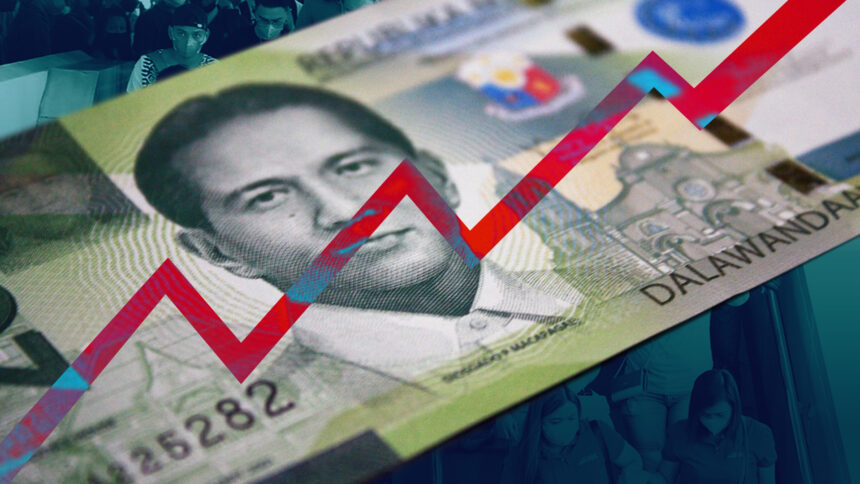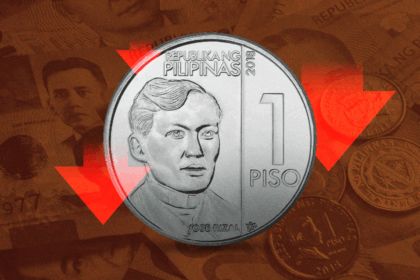In an unprecedented move, the House of Representatives approved the bill granting an across the board P200 increase on minimum wage last June 4, marking the first legislation on salary increase since 1989.
The bill garnered 171 yes votes, zero no votes, and one abstention last Wednesday’s plenary session; the proposed legislation is expected to impact 5 million private sector workers in the country.
With the bill awaiting the senate and the president’s approval, labor groups and employers remain divided on the possible impacts of the bill.
The Employers Confederation of the Philippines (ECOP), alongside other employer groups, warns that businesses will suffer the brunt of compensating and thus resort to firing employees.
According to ECOP President Ortiz-Luis, the measure targets 99 percent of businesses, as micro, small and medium enterprises (MSMEs) are unable to compensate with employees’ wage increase.
“Eight percent is small, 1 percent is medium, and less than 1 percent is large. The medium and large, they can afford it, but they are paying more than that. The micro, no way,” Ortiz-Luis said.
In 2025, MSMEs comprise 99.6% of businesses in the Philippines, according to the United Nations Development Program.
Ortiz- Luis also emphasized that the bill will only help the formal sector, leaving out individuals working under the informal sector including fisherfolks, market vendors, tricycle drivers, and jeepney drivers to name a few.
“The reality is increasing [the] P200 minimum wage and the President knows…this will only benefit about 10 to 16 percent of the workers,” said Ortiz-Luis, expressing concern over informal workers that will be left behind.
‘Inflationary Impact’
Employer groups also sound the alarm on how the bill could lead to higher inflation rates, as prices of commodities are expected to rise.
According to John Paolo R. Rivera, a senior research fellow at the Philippine Institute for Development Studies, companies will be prompted to raise prices of their goods and services to compensate for the soon-to-be mandated wage hike.
“Businesses could pass on the higher labor costs to consumers through increased prices,” Rivera said via a Viber message. “However, the inflationary impact would depend on the scale of the wage hike and whether it is staggered or accompanied by productivity gains.”
To help business owners keep up with the possible setbacks caused by the wage hike, lawmakers proposed to provide subsidies to employers and companies.
“We recognize the impact of mandating wage increases on micro and small businesses which is why the government must act by providing wage subsidies to ensure that their workers receive fair wages while ensuring the survival of their businesses,” Gabriela Representative Arlene Brosas said in her opening statement during the plenary session.
Labor groups, lawmakers fight back: “long-overdue legislation”
Despite receiving clamor on how the bill could worsen inflation and job displacement, lawmakers and labor groups assert the urgent need to increase the country’s minimum wage.
The Federation of Free Workers, lead by its president, Sonny Matula, praised the passing of the bill stating that the wage hike is a “long-overdue corrective step toward giving workers a just share of that growth,”.
The last wage increase legislation, the Republic Act 6727 or the Wage Rationalization Act, was passed in 1989 — with wages increasing to P89, uniformly set across the regions.
36 years since then, wage hikes are decided per region by respective regional wage boards, with the National Capital Region having a P645 minimum wage — the highest in the country, while the Bangsomoro Autonomous Region in Muslim Mindanao (BARMM) only earns a P361 daily wage.
Kilusang Mayo Uno and other labor groups have been calling for a national wage hike and criticizing regional wage boards, stating that costs of goods and services remain the same across the regions.
Despite this historic move, the proposed wage hike remains far from the P1,225 daily family livable wage suggested by the IBON Foundation, as such, progressive groups including Gabriela Partlist voted yes with reservations to the bill— highlighting that the proposed wage hike is far from ideal.
“This means the current average wage in the country is glaringly insufficient for families to sustain and afford adequate food, shelter and other basic necessities, while still being able to have savings,” Brosas stated.
Nonetheless, she welcomed the proposed bill, stating that “now is the time to finally break the long years of legislative inaction,”.
Although the P200 across- the -board wage hike bill has passed its final reading, the Senate and the House of Representatives need to reconcile on whether they will implement a P200 or P100 increase, as the upper house had passed a resolution focusing on a P100 wage hike last February 2024.








